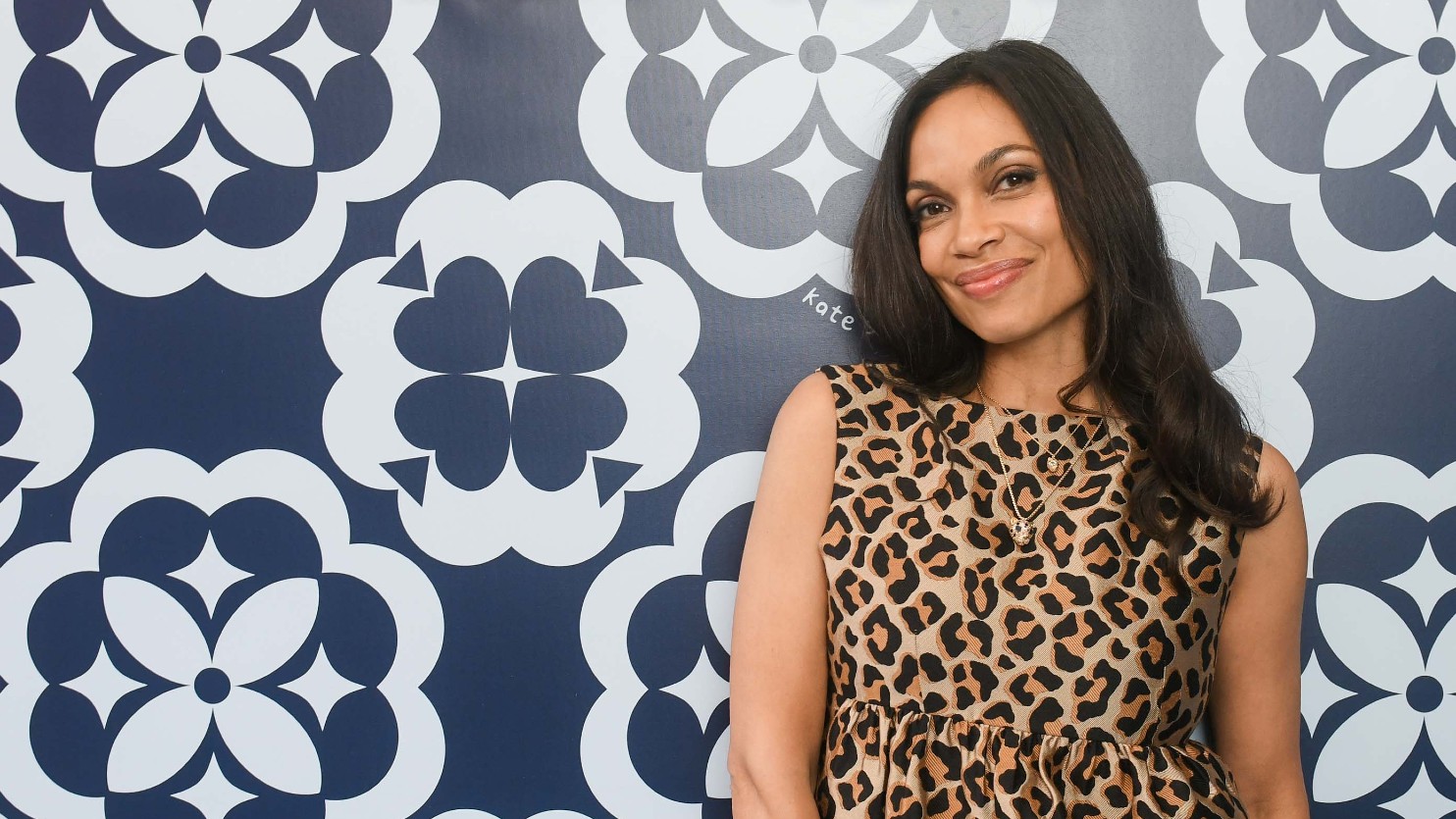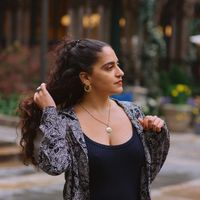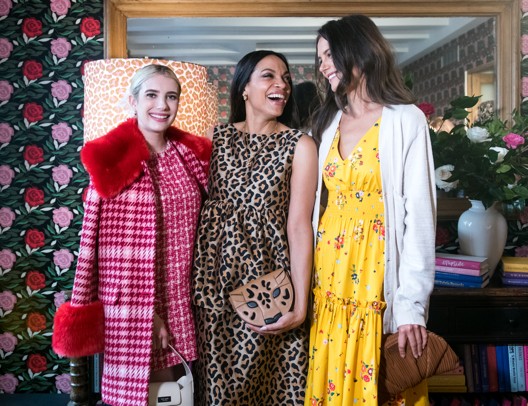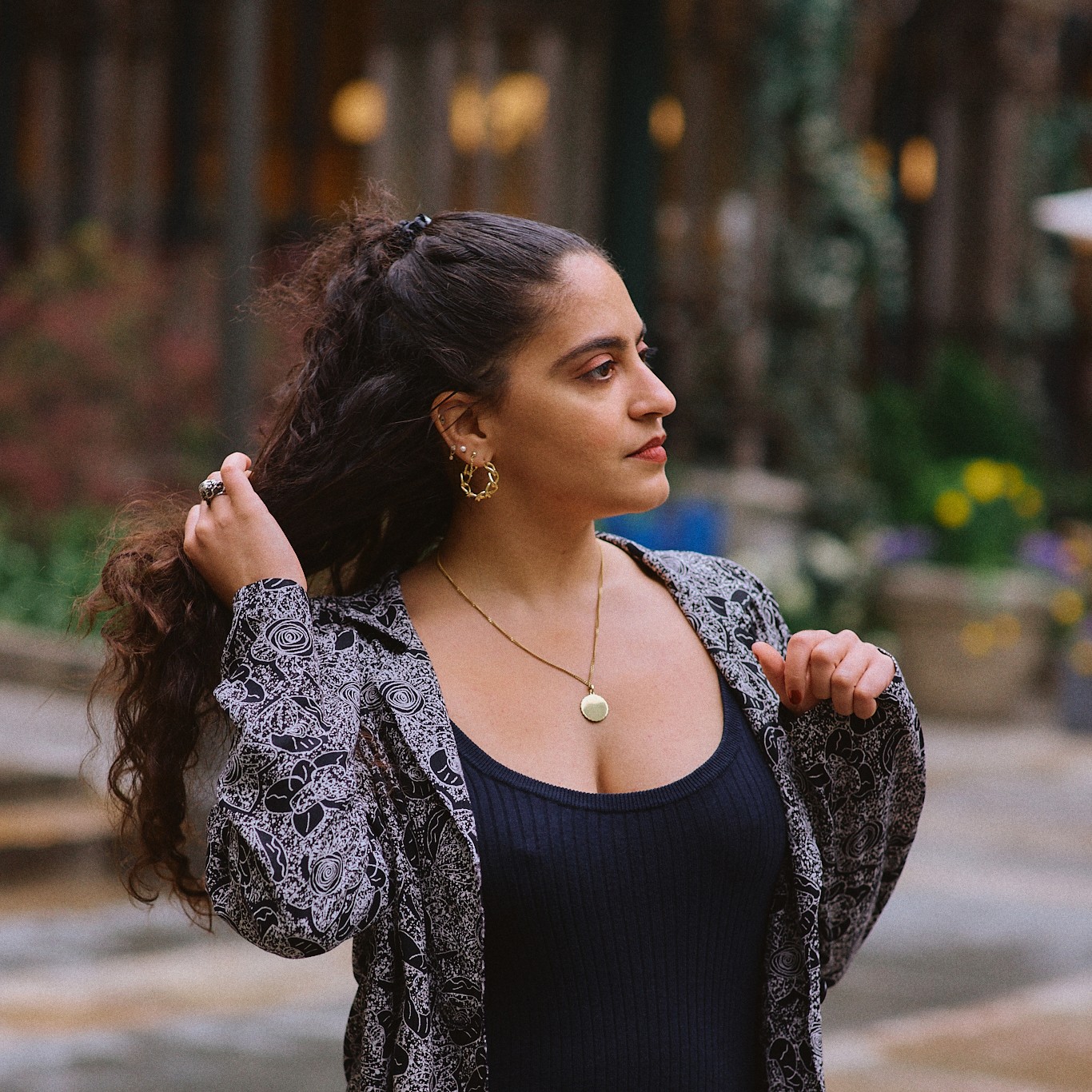Rosario Dawson's Love of Fashion Started With Her Grandmother
The Kate Spade fan talks history, hand-me-downs, and dressing to inspire happiness.


On the last day of March, Kate Spade kicked off the new spring season with a series of events that looked forward. The fashion brand’s fall collection is full of bold prints, patterns, and textured fabrics, meant to inspire a year of celebration. After two years of life and fashion put on pause, the joyous collection revels in the wonder of dressing for fun.
“Coming out of COVID and the pandemic, we’ve been filled with so much more gratitude for the small things and finding the extraordinary in the very ordinary, like being able to be with each other in an intimate setting like this,” Jenny Campbell, the brand’s CMO, said at the Manhattan event. “So for us, this year is really all about celebrating our community.”
But for Rosario Dawson, one of the brand's celebrity fans who was at the event along with Emma Roberts and Katie Holmes, the joyful collection reminds her of her family’s past, the part of her past which made her fall in love with fashion in the first place.
“I thought of my great-grandmother, who used to work for the International Ladies Garment Workers Union,” said Dawson, who wore a leopard jacquard top and midi skirt set in roasted cashew, which she paired with matching leopard heels.

“My mom used to say that when she was younger, she loved it because she had all the coolest patterns, and they couldn't afford to buy something like Gloria Vanderbilt jeans, but she could get these awesome bell bottoms and crop tops that my great-grandmother could make her. But she would also be super embarrassed, because then she'd sit on the couch or stand next to the window and then she'd blend in with the curtains and the pillows and the covering. That used to disturb her, but now all these years later, it's being celebrated in this collection,” she says. “So, to me, that’s actually so sweet. I loved it.”
I tell Dawson my grandmother was a seamstress, too, and that my mom told me the same stories. Both Dawson and I come from Puerto Rican families from Manhattan’s Lower East Side. And, it turns out, both our love affairs with fashion had begun in the same unlikely place: with Latina grandmothers who sewed clothing out of the drapes.
Dawson is known best for her roles in films like Rent (2005), Seven Pounds (2008), and Sin City (2005), and more recently on shows like Dopesick and The Mandalorian. But the award-winning actress has also been fiercely active in the ethical fashion space, having co-founded her own artisan-produced fashion brand, Studio One Eighty-Nine, in 2013, which is inspired by history and hand-me-downs.
Get exclusive access to fashion and beauty trends, hot-off-the-press celebrity news, and more.
For Dawson, fashion isn’t just clothes. It’s history; it’s a way to give back; and it’s an opportunity to make purchasing choices that will make a difference. Between taking in all the fun, high-octane pieces in the new collection and snacking on croissants, I caught up with Dawson about Kate Spade, fashion nostalgia, and what it means to be an ethical consumer.
Marie Claire: You've long been very outspoken and politically aware, and you bring a lot of your background as a woman of color and as a Latina into your work. I also know that Kate Spade does a lot in terms of women's empowerment…
Rosario Dawson: And mental health, too!
MC: Yes, exactly, and, especially in the wake of the pandemic, these are huge hot topics.
RD: Huge!
MC: With that in mind, I was wondering if you could speak on the relationship between your philanthropic endeavors and Kate Spade's.
RD: “One of the things I love about Kate Spade’s philanthropy is that they work a lot with the Lower East Side Girls Club and have been a really great partner with them. During the pandemic, the Girls Club opened up their wellness center, which speaks to this recent understanding that mental health issues are just skyrocketing through the roof—for girls and for everyone.
If there's any silver lining that's come out of [the pandemic], it's that people have been a lot more comfortable talking about what they’re going through, especially feelings of isolation, which so many people have suffered from while marginalized, on the side, and stigmatized. But now that it's swept through the entire population, people have a different understanding, and recognize that as great as everything can be going in your life, something can pivot and undermine that.
It’s important for big companies like Kate Spade, which has a lot of reach, to act. They’re putting out the energy of celebration, but they also understand that sometimes that's not so accessible, so they find ways to bring those folks in and recognize them, and not shame them but actually empower them. I think that’s really beautiful, and that’s done in their clothes and in their philanthropy, as well.
I think that if there's any silver lining that's come out of [the pandemic], it's that people have been a lot more comfortable talking about what they’re going through, especially feelings of isolation, which so many people have suffered from while marginalized, on the side, and stigmatized.
MC: Can you tell me more about how that speaks to the new fall campaign, and what you’re most excited about for that collection?
RD: I’m so excited about the fall collection. What I didn't realize until I just spoke with Tom [Mora, a designer, part of the Ideation Studio] was exactly where it came from, because I was like, ‘This is sparking so much joy—this just has such good vibes.’ And he said that they were just capturing that idea of the Kate Spade woman as a very New York woman: Maybe she’s in pajama bottoms with a dope sweater on, and she put on lipstick because she felt like it. Or maybe she goes to the corner store looking really cute, and maybe she bumps into her friend who's like, ‘Let's go grab drinks!’ and she's like, ‘Ok, cool, let’s go.’ The style is just so easily interchangeable. He was showing me something that was pajama chic, while there's other stuff that feels very dressy. And the materials are made from what you would make a curtain or pillows from, and that rich texture is what you’re experiencing. When he was telling me that this was the impetus for this collection—the pom poms and the tassels and curtains and things—I thought of my great-grandmother.
MC: My grandma was a seamstress, too, so my mom actually went through the same thing yours did.
RD: Right? I was looking at all of this like, ‘Yo, this is giving me plastic-cover-couch vibes.' It's so dope.
MC: Yes, those couches in Latin households that are in the living room only guests are allowed to sit in.
RD: Yes, exactly. It's playful! I also love the crossbody flower. I think that because the Kate Spade brand is so behind recognizing mental health problems, they make the distinctive choice to go back to nostalgic, warm times, or grandma, or the safety and comfort of home, while also inviting you to step out in flirty, beautiful patterns. They feel familiar, but are done in a way that is interchangeable and playful, and I just think that’s important. I like that this collection is about celebration. It's about joy and playfulness.
MC: Could you talk more about your relationship with fashion and how that's transformed throughout your career, and how it's been informed by your personal history?
RD: I love the hand-me-downs! I think that's just an incredibly important—the idea of mending and repairing things—so I have a fashion line called Studio One Eighty Nine and we do a lot of upcycling, using artisanal methods, making small batches of things, and just being really mindful of the fast fashion space by choosing ethically sourced materials and working with sustainability in mind instead. We use regenerative farming practices and everything, and I think it's really remarkable that we're in a space right now where people are voting with their dollar and they’re concerned about the planet. It's making more people pay attention.
Customers are becoming more aware and that the audience is demanding more and we're doing it in a way that doesn't take away from style or quality. Those things don't need to be compromised, but you also don't need to hurt people to look great. You can dress nice and love on people at the same time—those things don't have to be mutually exclusive. And I'm loving seeing more and more of an understanding of that.

Gabrielle Ulubay is a Beauty Writer at Marie Claire. She has also written about sexual wellness, politics, culture, and fashion at Marie Claire and at publications including The New York Times, HuffPost Personal, Bustle, Alma, Muskrat Magazine, O'Bheal, and elsewhere. Her personal essay in The New York Times' Modern Love column kickstarted her professional writing career in 2018, and that piece has since been printed in the 2019 revised edition of the Modern Love book. Having studied history, international relations, and film, she has made films on politics and gender equity in addition to writing about cinema for Film Ireland, University College Cork, and on her personal blog, gabrielleulubay.medium.com. Before working with Marie Claire, Gabrielle worked in local government, higher education, and sales, and has resided in four countries and counting. She has worked extensively in the e-commerce and sales spaces since 2020, and spent two years at Drizly, where she developed an expertise in finding the best, highest quality goods and experiences money can buy.
Deeply political, she believes that skincare, haircare, and sexual wellness are central tenets to one's overall health and fights for them to be taken seriously, especially for people of color. She also loves studying makeup as a means of artistic expression, drawing on her experience as an artist in her analysis of beauty trends. She's based in New York City, where she can be found watching movies or running her art business when she isn't writing. Find her on Twitter at @GabrielleUlubay or on Instagram at @gabrielle.ulubay, or follow her art at @suburban.graffiti.art